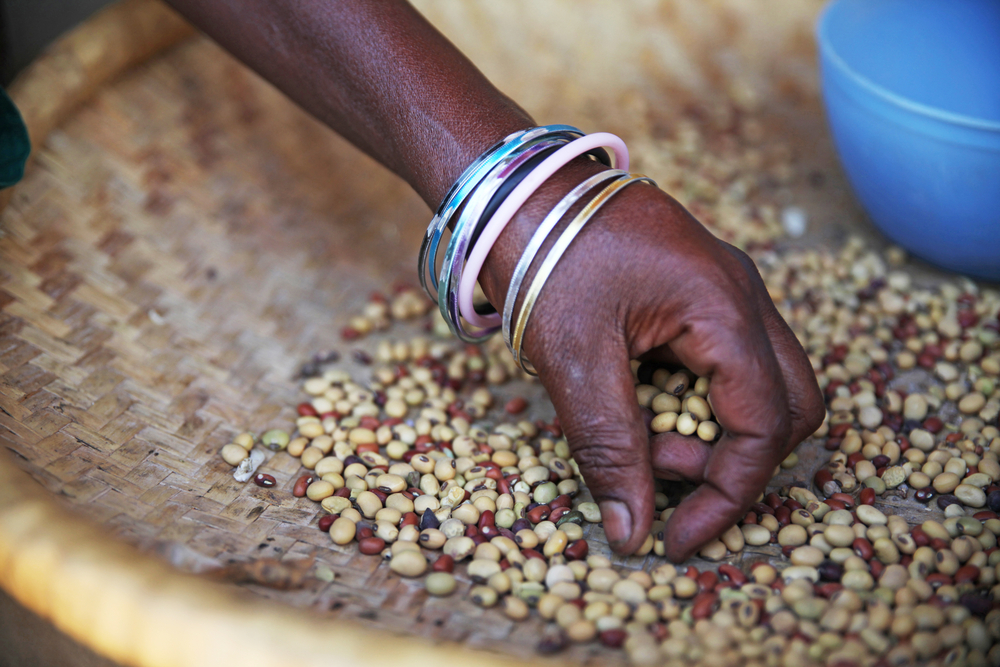Part of the Food Policy Community Spotlight Series
Name: Global Alliance for the Future of Food
What They Do: The Global Alliance for the Future of Food is a strategic alliance of 27 philanthropic organizations around the world that work together to improve sustainability and equity in food systems and agriculture. The Alliance is comprised of thought leaders representing diverse foundations across multiple sectors – philanthropy, researchers, grassroots movements, the private sector, farmers, Indigenous Peoples, government, and policymakers – whose common vision is to challenge the status quo and develop lasting solutions to food systems issues.
The Alliance functions as a platform for organizations to work collaboratively on initiatives that would be more challenging to tackle alone, and to bring local organizations into global discussions. Currently, the primary focus is on the UN Climate Change Conference, COP28, which will take place in the United Arab Emirates from November 30 to December 12, 2023. The Alliance is creating a collective strategy for the conference and funding under-resourced grassroots leaders to attend.
How They Do It: Member organizations lead the strategic direction of the Alliance’s work. It is governed by 1) a Steering Committee made up of member organization representatives, and 2) the Coordinating Secretariat, Alliance staff who work to improve communication, increase engagement, and advance food system priorities.
When they enter the Alliance, member organizations join one of four working groups: Climate, Aquatic and Terrestrial Foods, Food Justice, or Research and Action/Agroecology.
- Climate focuses on the intersection between climate and food – how food systems affect climate change, and how climate change affects food production.
- Aquatic and Terrestrial Foods examines the importance of foods coming from both land and water, and how both types of foods play into a holistic food system.
- Food Justice works to solve discrepancies in food access and health equity resulting from colonization and systemic race, caste, and gender biases.
- Research and Action/Agroecology works to elevate evidence around using ecological frameworks in farming.
These working groups meet as needed, virtually or in person, to discuss current issues and potential solutions, and to engage each other and partner organizations in the work.
Member organizations identify and look towards Beacons of Hope – examples of global food system transformation successes – as inspiration for their own strategic plans and actions.
There are three components to the Alliance’s strategy:
- Convening: Bringing together philanthropic foundations, funders, investors, civil society organizations, businesses, and social movements to align their efforts around food systems transformation.
- Forging insights: Developing research and tools, based on diverse knowledge and evidence, to better understand and assess interrelationships, risks, trade-offs, and synergies in food systems transformation.
- Inciting action: Connecting global and local perspectives, knowledge, and understanding across geographies, aiming to collectively accelerate effective action on the ground while recognizing that change must be sensitive to context.
The Alliance’s decisions are based on seven guiding principles:
- Renewable food systems allow cultures and traditions, as well as natural resources, to continue to regenerate indefinitely while maintaining adequate quantity and quality of food.
- Resilient food systems will adapt to natural disasters and economic downturns without exacerbating climate change.
- Equitable food systems promote job security in agriculture, particularly among women and small farmers, and improve food security for all.
- Diverse food systems protect local and cultural traditions in agriculture, agricultural biodiversity, and consumer health.
- Healthy food systems provide foods that support health for all living beings, avoiding contamination and eliminating malnutrition.
- Inclusive food systems engage diverse organizations in a democratic, authentic, and transparent way.
- Interconnected food systems recognize the interwoven dynamics of each part of the food system at local and global levels.
The Alliance has also created seven calls to action that it believes will lead to systemic changes:
- Ensure inclusive, participatory governance so that all voices are heard.
- Increase research for the public good to obtain a holistic and transdisciplinary understanding of food systems.
- Account for the environmental, social, and health impacts of food system policies in order to allow for informed decision-making.
- Direct public finance and policy away from incentive programs and toward lasting reforms that involve stakeholders from all sectors.
- Unlock investment opportunities from philanthropic and private funders to spur food system transformations.
- Enable agroecology (ecological concepts in farming) and regenerative approaches to grow through coordinated governance and the use of innovation.
- Promote nutritious, whole-food diets through equitable access, dietary guidance, and controls on ultra-processed foods.
Monitoring and evaluation are critical components of the Alliance’s approach and allow the organization to learn from their work and adapt to future needs.
Mission: To leverage resources and networks to help shift food and agriculture systems toward greater sustainability, security, and equity.
Latest project/campaign: With the Rockefeller Foundation and the World Wildlife Fund, the Alliance is co-hosting Food Day @ UNGA (United Nations General Assembly) on Wednesday, September 20, from 8:45am to 5:00pm, as part of Climate Week NYC and the 2023 SDG (Sustainable Development Goals) Summit. Food Day “will be a highly interactive event with attendees participating in Action Labs to discuss the opportunities that will maximize impact in the shortest time possible, enhance collaboration and unlock the potential of food systems as a solution to the climate and nature crises.” The full agenda is available here, and online registration to livestream the event is available here.
Interesting fact about how they are working to positively affect the food system: The Alliance brings together organizations around the world from various parts of the food sector. As a global strategic alliance, it has a broader strategic influence on transforming food systems than any one organization alone.
Major Funding: Membership fees, the Meridian Institute, individual member organization funding
Profit/nonprofit: Nonprofit
Annual Budget: <$4 million
FACT SHEET:
Location: N/A
Core Programs: Strategic alliance
Number of staff: 12 (Coordinating Secretariat)
Number of volunteers: 10 (Steering Committee)
Areas served: Global
Year Started: 2012
Executive Director: Anna Lappé
Contact Information: Email: info@futureoffood.org
Website: https://futureoffood.org/


